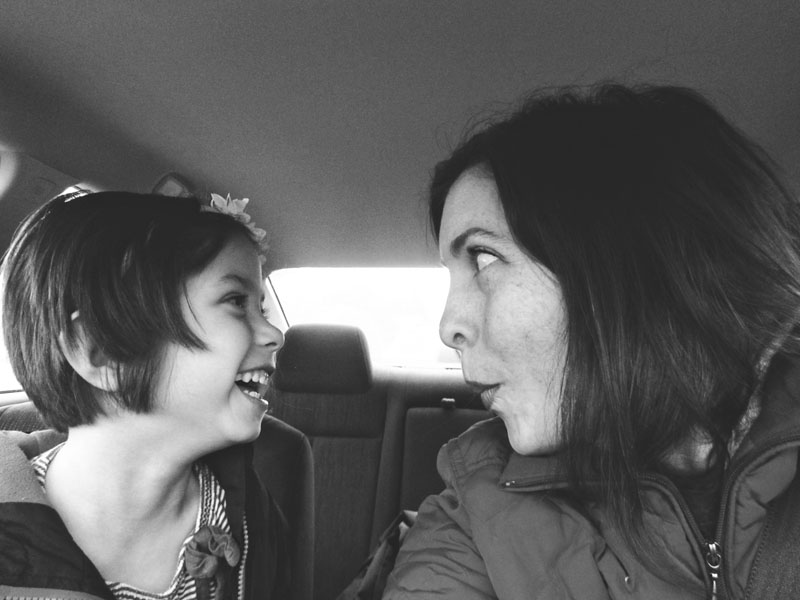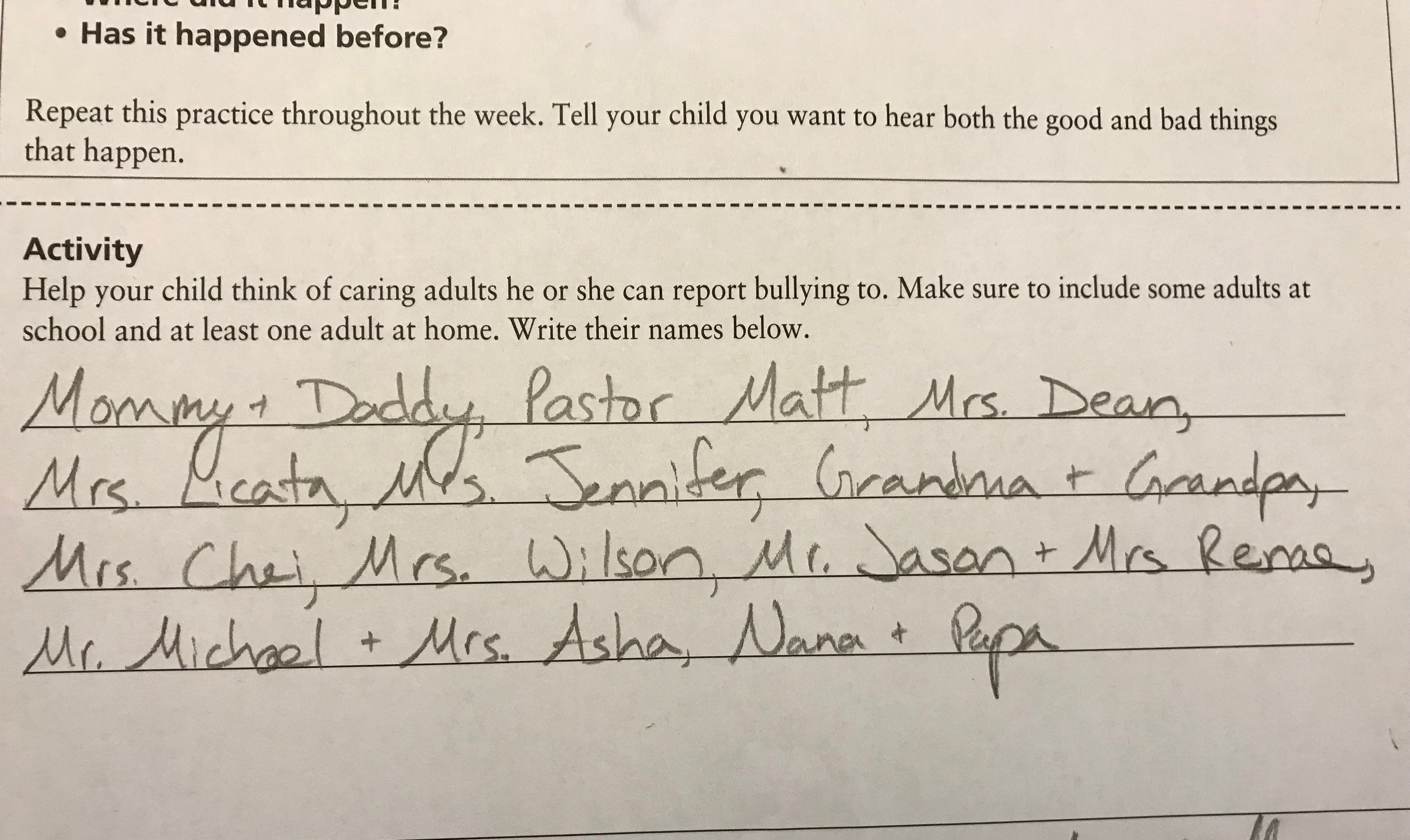My son came home from school with an assignment. He was supposed to sit with me and talk about who were the trusted adults in his life he could talk to if he had a problem. The focus of the assignment was on bullying, but this is actually an activity we’ve done many times with our kids.
Each August we make sure to spend some intentional time answering our kids questions about reproduction, development and boundaries. We talk about porn and we talk about sexual abuse. As part of those conversations, we ask them to tell us five people they could talk to if they felt uncomfortable and for some reason they weren’t able to talk to us right away or if they felt unsure about talking to us for some reason. We help them think about who is their most trusted adult at school, at church, in the neighborhood and in our extended family. We talk about how loved our kids are and how any of those adults would believe them and would want to help them.
So as I sat there with my six-year-old, the names came quickly. We ran out of space on the sheet of paper before he ran out of names. And the names he picked were all good ones. They were people I trust who do have our family’s best interests at heart. When I asked him who he could tell if something happened at church, he said he would leave his class and go tell our pastor, which made me laugh. I loved the idea of something uncomfortable happening and my child feeling confident to interrupt a sermon to make sure the pastor knew. I don’t imagine that would actually happen for a number of reasons, but I do whole-heartedly believe my kids feel confident that their pastor would want to know and would want to do something about it.
I would highly recommend all parents do this kind of activity with your kids regularly. Do it in the car on the way to school. Do it in the grocery store. Do it during story time. Make it low-key and simple. It doesn’t need to be some high-pressured thing that makes them concerned that they’re unsafe, just a conversation you have together. I have found it to be really helpful in letting me know who is influential in my child’s world. Knowing that information can help me encourage mentoring relationships and it helps me see some aspects of my kids’ personalities that I might not otherwise have seen. It’s great to know who connects with them and what personalities they gravitate towards. And if I have concerns about who those people are, this is a good time for me to have that conversation, too.
As we did this activity, I couldn’t help but think about a Body Safety training I recently attended through the local Child Advocacy Center. As we talked about making sure our kids could name at least five safe adults from all spheres of their life, the trainer confessed that she had worked in some classrooms where they had to cut it down to three. They had to help kids identify just three safe adults. And sometimes they had to work with some kids who had to stretch to think of one safe adult. One safe adult in their whole lives who might be someone they could talk to if the worst was happening to them.
One trusted adult can be the difference between a child feeling safe enough to tell and a child continuing to carry the burden alone. On my son’s list, there were adults who I think might be surprised to find themselves there. I don’t think those adults would necessarily know my child considered them “safe.” They weren’t necessarily people who always went out of their way to interact with him, but they were people who had invested in his life at different points. They were people who had been in our home and had been supportive of our family. They were people who knew him by name and would ask how he was doing if they saw him.
As I looked at the list of adults my child had written down, it made me wonder whose list I might be on. What kids in my world would know I was safe and would want to help them if they needed it? Are there kids in my circle who are struggling to find that ONE safe adult? Could I be that one safe adult in their world? For many of us, we sit comfortably in a community of love and support for us and for our kids. It takes those perspective reorienting moments of realizing how many kids and moms may not have the community and support they need.
As “safe adults” can we be more mindful of the children around us who need us? Can we extend our view beyond the circle of our own safety and community to see the kids out there on the periphery? Can we find intentional ways to be involved in their lives through volunteering in our schools, mentoring programs, church outreach and neighborhood involvement? I think it’s too easy to imagine that all kids have the same kind of love and support that we provide to our own children, nieces and nephews, and our friends’ kids. But it’s just not the case. As we’re meeting our children’s friends, let’s be thinking about those kids who may be desperately needing that one safe adult. What can we do to be that for a child in need? As I’m interacting with children, I’m working to keep that thought in my mind. I hope you can join me in intentionally working to be a safe, trusted adult for the kids you know.


